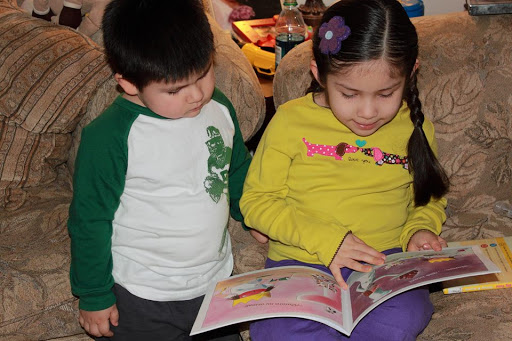
Three of my children were in school until five years ago, the other three never attended any school/preschool. About a year ago the seven year old who never attended school learned to read. He talks about learning to read but my older kids who learned in school often say "I was taught to read." There is a different sense of feeling for them. The children taught to read take no responsiblility for it and the James takes full credit. James felt empowered by reading, it was evident from the very beginning but when the other children learned, they had no joy for it.A few years later and they now love reading but not as much as James. He also learned rather quickly. It went from us typing things into YouTube or google for him to him asking 'How do I spell this word?' to just reading and writing. I felt like there was not much in between.
—Kandace Wright
a Mom in a discussion online: A homeschooling friend has shared that she feels we need to teach the basics then unschool them.
Joyce Fetteroll: Your friend is wrong. If she's never experienced a child who learned to read or do math without instruction then of course she's not going to be able to imagine it's possible.
Sandra Dodd: If what the friend is imagining is that a child who reads will then acquire all the other knowledge on her own, that's not the worst vision in the world. If what the friend is hoping is the child will get past the point that the mom worries about getting in trouble or failing entirely, I can understand her reasoning.
If she REALLY wants to unschool, though, it will help her immensely to see how many ways children can learn without reading. And it will help the children immensely to have the deep confidence that they can learn without instruction. Any child who has learned to read without "being taught" (and I have three of them) cannot doubt that he can learn other things without finding a teacher and following a prescribed course.
Holly takes fiddle lessons. In the course of a month she has private, paired and group sessions. She really likes that. She shows me what she learns and I play with her at home. I found her some songs and a book and she goes outside of just what the teacher has assigned. Many music students don't. School-trained, or just lacking courage and joy, they will only play what the teacher "makes" them play, or what the teacher tells them they can play, without thought to the idea of figuring out that through experimentation and analysis, they can figure out themselves what other songs might be within their range of ability.
Kirby studies karate at a dojo where he's gone for seven years. He's part of a longterm group, there are many adults there who have watched his progress all those years, and once a week he teaches a class of younger children. So although there is a prescribed course, there are several different aspects and there is flexibility to the learning and activities he's involved in there.
Had I just taught my kids to read and then unschooled, they would not be the calmly confident people they are today. They might be saying "Okay, mom, time to teach me division" or "Mom, you didn't teach me to spell yet." Instead of that, I help them learn whatever is in front of them.



